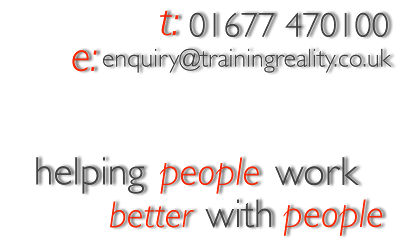Please press (at least!) one of these.
It costs you nothing, and (possibly) helps us spread the word!
Systems undermine sense
Friday, 25 September 2009
If I hadn’t been driving at the time, I’d have thrown my hands up in despair. There was a report on the Today Programme on Tuesday morning (BBC Radio 4) covering the results of an OFT (Office of Fair Trading) investigation into the construction industry.
I’ve been around long enough to realise that not every business operates with integrity and honesty, and the fact that 103 construction firms have been fined a total of nearly £130 million (sounds a large number, but actually represents only around 1% of turnover) wasn’t the part that really horrified me - although perhaps it should.
The part of the report that gave me the strongest reaction was the example given by Simon Williams from the OFT. A primary school in Nottinghamshire had gone out to tender for some building work (a contract worth around half a million pounds), and had got quotations from four building contractors. The OFT has discovered that three of the companies involved conspired with the fourth to put in artificially high “cover bids”, thereby allowing the one company who was interested in the contract to win it with an unnecessarily high quote.
Public sector procurement is becoming a little bit of a hobby-horse of mine, and, to be honest, one which part of me enjoys cracking the whip over. This example, examples I gave on a blog back in August ((Questions Questions)), and others too numerous to go into manage to simultaneously raise my ire and give me faith in the training approach that we use at trainingreality.
Many large organisations, public, private and third sector, end up developing complex and rigorously enforced policies, guidelines, systems, processes and procedures in order to control staff behaviour, protect people, the organisation, and broader stakeholders. The major issue that I have with this is not that they shouldn’t exist at all, but that they should be there in a supporting role, acting behind the lead characters of integrity, honesty, common sense, intuition and practicality.
At trainingreality, all of our training courses, regardless of the specific training topic, are designed and delivered on the basis of allowing people the freedom to do the right thing. There is regular discussion in groups (often during informal parts of the courses) that people would love to be able to do certain things, but that written policies and procedures either don’t allow them to, or make it so difficult that a path of less resistance is chosen instead.
With the freedom that I have in running my own business, in the way that I see fit, I can offer two very simple, but fundamental and challenging pieces of advice. Neither of these should be taken as a naive view of business - as I said before, I think that a supporting role for policies and procedures exists - but as a provocative challenge to those people and organisations who rely on them or hide behind them.
1) For senior management who write or enforce them
When writing, introducing, or enforcing guideline, systems, and so on, ask yourself two question. Firstly, am I doing this because I cannot trust my staff to operate in the interests of the organisation with them? Secondly, are there any negative consequences or side-effects that will arise if they are put in place?
If the answer to the first is “yes”, then the real challenge is to your ongoing management structure, your recruitment, and your trust in your people. A positive aim should surely be to have an organisation with underlying trust, great recruitment of outstanding, honest people, and a working environment where things are done openly and obviously.
If your answer to the second question is “yes”, then there is a clear need to understand what those negative impacts might be, whether the cost of them is worth it, and whether there are any alternative routes (other than yet more written processes!) to achieving what you want to achieve.
2) For staff who have to follow them
If you work in an organisation riddled with policies and procedures, there are a couple of questions for you as well. Firstly, are these things preventing you from doing what you consider to be the right thing? Secondly, do you feel at all patronised, constrained or frustrated by them?
If the answer to the first is “yes”, then the real challenge is to push back against them. Using great communication skills, explain to those in control what the negative impacts are, what you would like to do but feel prevented from doing, and why what you want to do has integrity and is “doing the right thing”.
If your answer to the second question is “yes”, then how you choose to handle those emotions, and indeed whether you are in the right organisation at all, are critical elements that will affect your satisfaction and contentment at work.
--
We believe that people with positive intentions are much more successful (for themselves and for the organisation they work in) when they are allowed the freedom to use their common sense, intuition, integrity and honesty.
Please press (at least!) one of these.
It costs you nothing, and (possibly) helps us spread the word!





